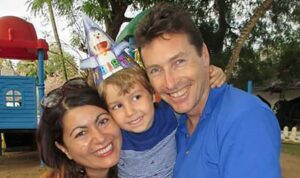
Dar es Salaam. The Bank of Tanzania (BoT) has made significant progress in its gold reserve programme and remains optimistic about achieving its annual target of six tonnes through various incentives.
One key incentive is offering a premium price and encouraging both large- and small-scale miners to sell 100 percent of their gold to the central bank.
Since the programme gained momentum in October last year, BoT has acquired more than two tonnes of gold.
BoT’s financial analyst, Dunga Nginilla, outlined potential investment strategies once the gold reserve reaches sufficient levels.
These include gold deposits, swaps, leasing and other gold-related investments.
“Our target for this year is set, but moving forward, we will conduct a risk assessment to determine whether to expand our investments,” he said, adding that larger acquisitions are expected as inflows increase.
BoT’s gold acquisition strategy is designed to boost national gold reserves while diversifying foreign exchange holdings.
Additionally, the initiative supports local miners by purchasing gold directly from them and authorised brokers, ensuring ethical sourcing while avoiding conflict minerals and child labour.
“Since October, BoT has been actively purchasing locally mined gold, ensuring proper registration and certification through the Mining Commission. Verification of purity is conducted by Geita Gold Refinery (GGR), Mwanza Precious Metals Refinery (MPMR), and Eyes of Africa Refinery (EOA) before submission to BoT,” he explained, emphasising that pricing aligns with London Bullion Market rates.
Initially, the bank faced challenges in acquiring gold due to payment delays, but the governor has streamlined the process, now guaranteeing transactions are completed within 24 hours.
To further attract miners, BoT has introduced VAT exemptions, foreign trade incentives, and premium pricing for unrefined gold.
Under export regulations, miners are required to sell 20 per cent of their gold exports to BoT, positioning the central bank as the preferred buyer.
According to BoT, foreign reserves play a crucial role in Tanzania’s economic stability by supporting foreign payments, currency stabilisation, and revenue generation through strategic investments in fixed-income instruments and money market deposits.
Furthermore, these reserves bolster investor confidence by strengthening the country’s financial standing, serve as emergency buffers against economic crises, facilitate trade, and support monetary policies.
BoT’s reserves are refined to 99.5 per cent or 99.9 per cent purity, ensuring maximum investment returns while reinforcing Tanzania’s position as a major gold player.
Looking ahead, BoT aims to support national objectives by strengthening local refineries for certification and addressing financing challenges for gold sellers.
Additionally, the bank seeks to reduce bureaucratic bottlenecks to simplify gold operations, maintain competitive pricing, and enhance tax incentives to attract more local sellers.














